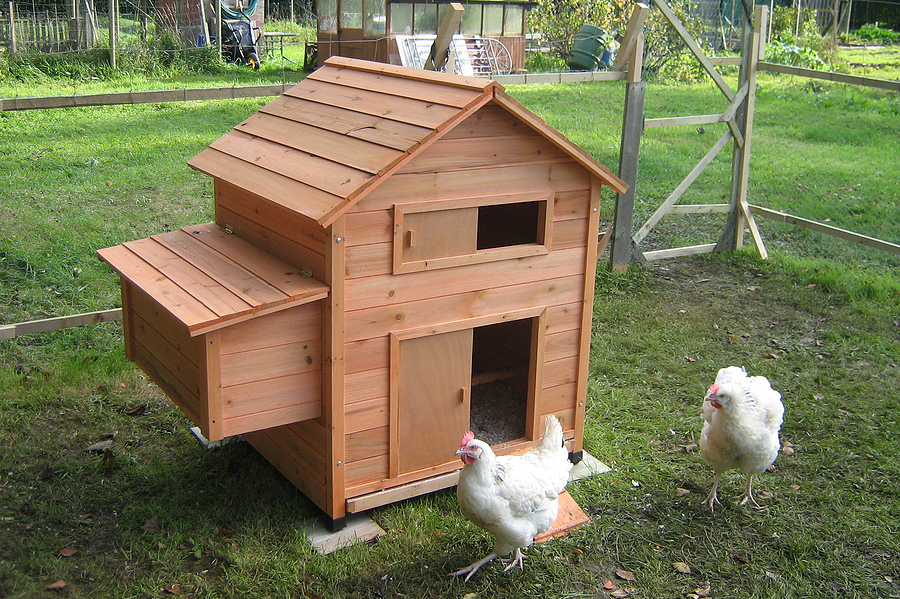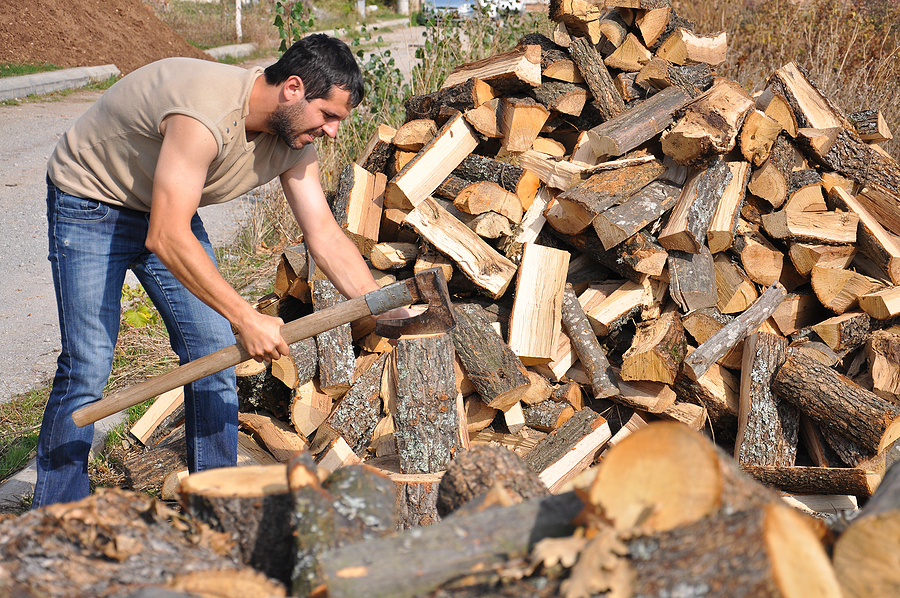
Many moons ago, when Lyndon Johnson was the President of the United States, I was born in Detroit, Michigan, not Warren like some posers who claim to come from the “mean streets of Motown.” Despite what you might have heard, growing up in the Motor City in the 1970’s was not that bad for a kid. You learned which streets you could walk on and which ones you did not dare to. However, by 1983, when we lived off of “Six and Gratiot” the city was taking a hard turn for the worse.
My mother was born and lived for a time in rural Ohio in her youth. My parents decided that we needed a change from city life so, like the Beverly Hillbillies in reverse, we packed up the truck and moved from the bright lights of the big city to the cornfields of rural Holmes County, Ohio. It turned out to be one of the best and most important experiences of my life.
A “Hobby Farm”
Leaving Detroit behind, we moved into a small farm house that had previously been built by the English, but most recently owned by the Amish, therefore it had no electricity, telephone, etc. when we took occupancy. There were indoor plumbing and fixtures, but they weren’t hooked up. For the first few weeks we roughed it, lighting the house with kerosene lamps in the evening, using an outhouse and drawing water from an outside well. There was a genuine wood-burning cook stove in the kitchen where my mother prepared our hot food until the electrician came to hook up the power and the plumber got the inside water running.
On the property was a good-sized barn with interior stalls for horses, cows, and eventually goats. Built onto the far end of the main barn were a chicken coop and a stall and sty for the pigs. Almost immediately upon our arrival my mother set about securing animals for the farm. If memory serves me, we bought chickens first, then a couple feeder hogs, and then a milk goat. A couple of horses and beef steer came later.
My parents’ intention wasn’t to become full time farmers — both of them were registered nurses — it was to raise as much of our own food as we could on the small farm. Back then I recall this set-up being referred to as a “hobby farm.” Of course there was no Instagram back then for us to post trendy photos. Hobby farm or not, getting it all going and keeping it going took a considerable amount of work.

For instance, the house was heated only with wood-burning stoves which meant that we cut wood and split it into burnable pieces all summer long and into the fall. As I was a teenage boy, the wood splitting job primarily fell to me. I learned about chainsaws and the difference between a felling axe and a wood splitting maul. No, you don’t split firewood with a felling axe.
Self-Reliance, Agency and Resilience
We are living in a world where more and more people are waking up to the fact that convenience has a price and that price is dependency. The reality of the world has always been that if you choose to be dependent on outside sources for your sustenance, sooner or later you will find yourself in a position of servitude.
Having embraced that reality, many Americans are looking at ways to be more self-reliant and less dependent on others. Many folks are looking at vegetable gardens as the way to go and that is not a bad thing. But humans need much more than carrots and tomatoes, they need a reliable and clean source of protein to maintain healthy and strong minds and bodies.
Chickens: The Gateway Drug for Self-Reliance
Understanding that a reliable source of protein is critical, many folks are looking at backyard chickens. One of the biggest fallacies that many people will harbor is “If you get some chickens, you get eggs for free.” Ladies and gentlemen, eggs are not free. Even if someone gave you a laying hen for free, chickens need to be fed. Every time I go to the ranch store to purchase chicken feed they charge me for it. The nerve, don’t they know eggs are free?

Yes, it’s true that chickens are scavengers and will eat food scraps, bugs, and other things on the ground. It is also true that, if you want eggs to eat, your chickens need to have a ready source of protein in their diet. They need calcium too for strong eggs shells and some kind of grit to help them break down the food they eat. Some of this can come from grazing and chickens will eat every bug they find on the ground. However, if you have a bunch of birds, they are going to clean the area out of bugs quickly. Don’t get me wrong, when they are out in the yard scratching, they are getting extra nutrition, but you still need to ensure they have protein.
Additionally, another fallacy people have is that a chicken will lay one egg a day, everyday for her whole life. Again, that is incorrect. Depending on the breed, you can expect a healthy hen, who is not molting or broody, to produce 4 to 5 eggs a week under good conditions. Poor weather conditions, such as thunderstorms, overly hot weather or cold weather with limited sunlight can upset your flock and reduce their eggs production. A good rule of thumb when you factor all of the previous in is to figure out how many eggs you expect to use per day and then double the number of hens.
I know a person whose family goes through five or six eggs a day, so they thought they would get a small backyard chicken coop and buy six hens. Six hens = six eggs a day, right? Nope. Six hens means 3 or 4 a day when all your ladies are feeling good and laying regularly.

If you are planning to buy those cute little chicks from the farm store and raise them to lay eggs, that will work, but it will be about four months from the day you bring them home until they start laying. Yes, you need to buy a special feed for the young ones and they will not be able to go out and graze/scratch for the first month to six weeks. When your juniors do start to lay, their eggs will be small and cute. Some folk call these “fairy eggs”. Two fairy eggs equal about one standard, large egg.
When your flock does get going, they will produce you some of the most healthy food you could possibly consume. As we mentioned earlier, your eggs will not have chemicals or pesticides in them, nor will they have unnatural hormones. Home raised chickens also get sunshine and exercise which have been proven to produce eggs that are higher in Calcium, Lutein, Vitamin A, Vitamin E, and Vitamin D. Not only do farm eggs have less saturated fat and cholesterol but they are higher in Omega-3 fatty acids which are essential for you. Farm fresh eggs are higher in Omega-3 fatty acids because chickens are able to forage for foods that are natural for a chicken to eat and are not found in the diets of caged hens that produce store-bought eggs. Home raised eggs are clean protein.
Caring for God’s Creatures
Another reason why chickens are the gateway to self-reliance is that they instill in us and our children a sense of caring for something other than ourselves. Kids should be doing chores. The state of our world has created a situation where people have become hyper-focused upon themselves and forgotten how to care for others or other creatures.
In my book “Team Honey Badger: Raising Fearless Kids in a Cowardly World” one of my recommendations is to get kids involved in farm work or at least have them be responsible for the care and feeding of animals. Children need to learn to care for God’s creatures and doing so make them all around better adjusted members of society.
While chickens might be hardy and resilient, they are also the favorite prey of numerous varmints and predators. Foxes, raccoons, coyotes, bobcats, etc. will kill your hens. Skunks, weasels, rats, martins, etc. will raid the nests and steal your hard-earned eggs. If you have active raptors in your area, hawks, falcons, eagles, they will all swoop down and kill your ladies. You must be prepared to protect your ladies, care for them, and keep them safe.
Paul G. Markel is a combat decorated United States Marine veteran. He is also the founder of Student the Gun University and has been teaching Small Arms & Tactics to military personnel, police officers, and citizens for over three decades.


ah, no.
“ah, no.”
You must have kids like my nearest sister’s kids –
Let’s say, lacking in motivation.
*snicker*…
fine young adults.
Thank you! Anything that makes us less dependent on the caprices of fate is a good thing. More articles on self-reliance please!
Chickens: The gateway drug of livestock.
And quit badmouthing “saturated fat and cholesterol”. Jeez.
Having a sewing machine and learning to repair or even make your own clothes. A very important skill. To bad woman don’t learn this. It’s a modern liberal idea of not being self-reliant. And instead rely on the government.
Even the atheist hated self-reliance. Because most people like that were also Christian.
i don’t know a single man who has any idea how to use a sewing machine. i’m all for changing that.
get off your high horse and knit me some socks.
my pops sewed all my shirts and mom’s and sister’s dresses. even made me a down vest from a frostline kit. when the treadle gave way to the electric he was in heaven. i was never so bored as when they would drag me to minnesota fabrics. now all the joann fabric stores are closing. he did all the cooking too.
i have no idea how a bobbin works, but i can make some mean busghetti sauce.
Sewing is a survival skill. Just like gun safety and proper marksmanship. Boys and girls took these classes when I was a kid.
Unfortunately the Left who attacked traditional family roles. Stopped these survival skills from being taught in schools.
Sadly the atheists fell for the argument against traditional roles education. Instead of thinking that it’s important for children to learn survival skills.
Chris T in KY,
Sewing is easy. As early as third or fourth grade I cut fabric and sewed my own small storage bag (for toys of course!), complete with drawstring. And I conceived the design and did it all by myself without any assistance from my parents.
In seventh grade Home Economics class I sewed manufactured patterns into a soccer ball pillow (made of fleece fabric) and a stuffed parrot toy. Like I said, it was not difficult at all.
Not everyone owns a gun or a sewing machine in their family.
Along with many other things. A school setting is the first place they may have a chance to learn these skills.
Just like not every family owns a home computer.
My mother taught me how to sew. it was fun. My father was a leather smith. He made sandals coats bags etc. Working with leather requires a lot of skill and patience.
I tried it. It’s not easy.
Maybe it’s a rural vs city issue? Most country folks learn about guns. And most city folks don’t.
I am probably going to take the plunge later this year and start keeping chickens. I have a sizable garden already and regularly harvest white-tailed deer. (I put 200 pounds of venison–pure meat with zero fat, tallow, or bones–in my deep-freezer this year.) A few chickens would produce eggs which we love to eat and would go a long way toward reducing our dependence on Big Corporation food supplies.
Fun fact: I am able to produce a LOT of vegetables in my garden. That is the easy part (sort of). The really hard part is that I have yet to find an efficient way to store/preserve all of that excess produce. Note: I am not very keen on the idea of spending weeks canning vegetables. For one thing, I don’t want to invest that much time canning. Second, I am out of space for storing jars in my basement. (I already store about 40 to 50 quart jars of canned venison and chicken in addition to a lot of other food stuffs.) I keep talking about building a root cellar to store large quantities of potatoes, onions, carrots, and squash. I suppose that I could add shelf space for canned tomatoes and dried bell peppers in such a root cellar since I don’t have any more room in my basement.